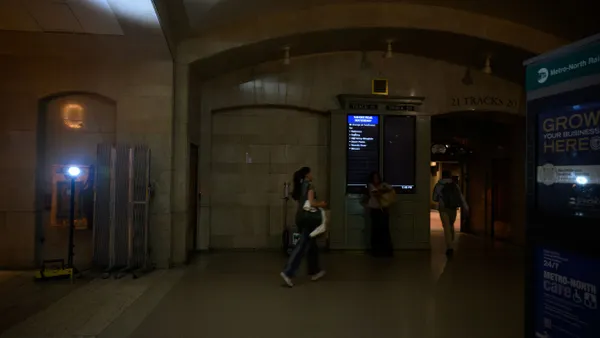The Public Utility Commission of Texas on Thursday approved a slimmed-down version of CenterPoint Energy’s system resiliency plan, ultimately approving about $2.7 billion for strategic hardening investments over the next three years.
Texas lawmakers in 2023 required electric utilities to submit resiliency plans to improve grid reliability. Oncor Electric’s $3 billion plan was the first to be approved, in November, and Entergy’s $137 million plan was approved in January.
CenterPoint’s original resiliency plan, filed in January, came in with a price tag of $5.75 billion. A June settlement cut the ask to $3.2 billion, and at the PUCT open meeting last week more was removed by commissioners.
Commissioner Courtney Hjaltman said she wanted to “remove a few measures that ... seem more about replacing materials that have come to the end of their useful life,” and make changes to how the cost of some vegetation management is recovered.
Hjaltman filed a memo on Wednesday discussing her proposed reductions to the plan. She raised concerns about the level of detail in CenterPoint’s vegetation management plan and how the costs to transition from a five-year to a three-year tree-trimming cycle would be recovered. She said the utility’s proposal looked more like an “augment” to its base vegetation management budget and that “the lack of verifiable details for the individual programs leaves us unable to sufficiently distinguish the resiliency investment.”
“To be clear, I am supportive of [the vegetation management projects] but consumers deserve transparency between increased base budgeting and the unique investments made through these resiliency plans,” Hjaltman said in her memo.
The day of the open meeting, CenterPoint filed a memo responding that “increasing the regulatory asset threshold as suggested would leave the Company unable to collect $30.67 million per year in incremental vegetation management expenses required to transition to a 3-year cycle” during the resiliency plan period.
At the meeting, Hjaltman said she was unconvinced.
“I still feel that CenterPoint is using base rates to cover the cost of implementing the resiliency plan, and to me that blurs the lines of what should already be done and what is the purpose of the resiliency plan, which is the ‘above and beyond,’” she said.
The PUCT voted 3-0 to approve the plan, in line with Hjaltman’s proposed changes. It includes more than two dozen resiliency projects for the 2026-2028 period, the utility said.
”These programs will benefit our customers and communities by avoiding more than 755 million outage minutes and increasing our system's ability to take a punch from extreme weather events and get back up more quickly after storms,” CenterPoint said in an emailed statement. “We look forward to beginning work this fall.”















